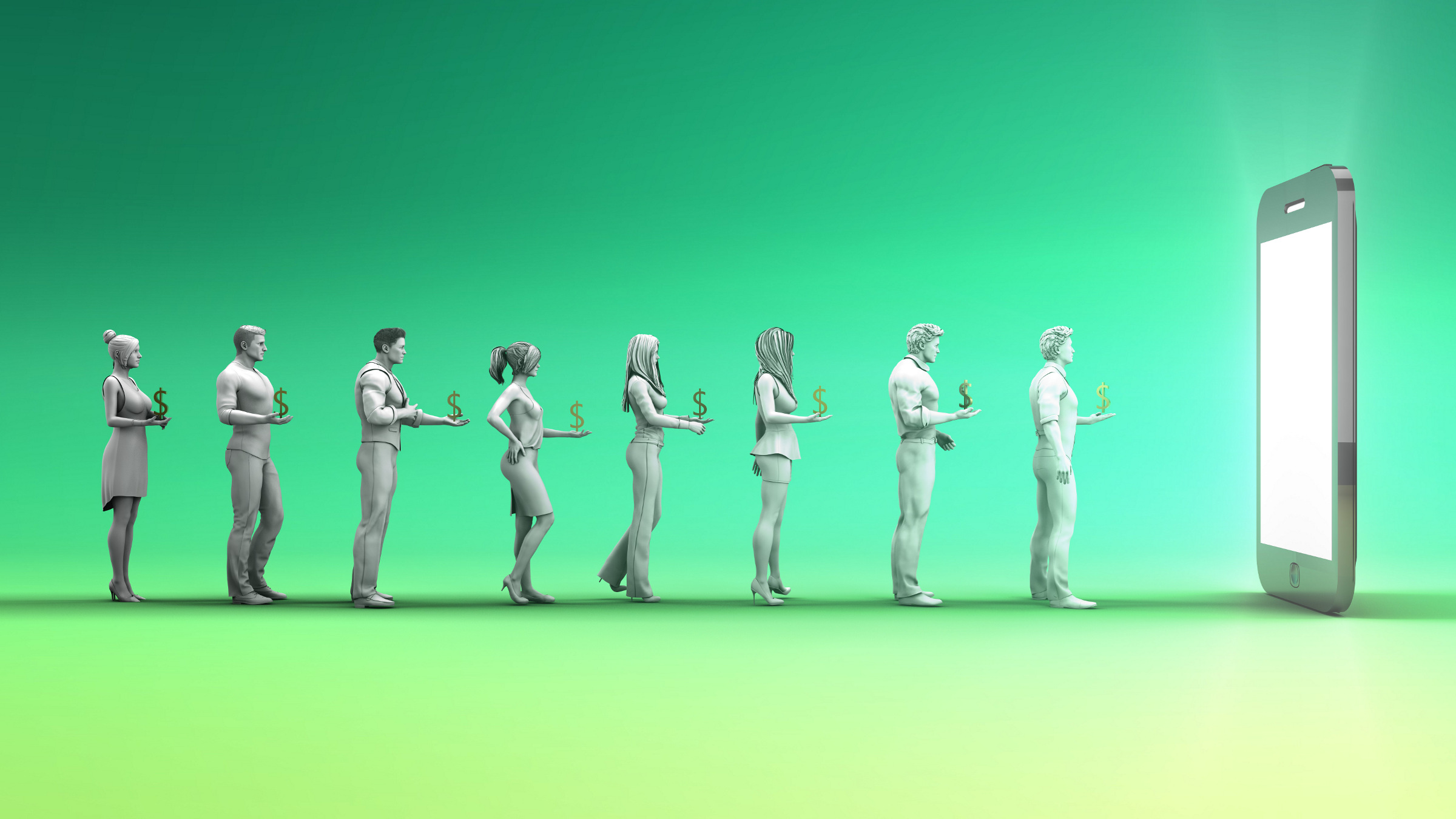
In a New York Times editorial,2 Google Chief Internet Evangelist and ACM President Vinton G. Cerf asserted Internet access is not a human right. He argued that a given technology can enable a human right, but cannot itself be a human right. He went on to say it is a mistake to assert rights status for any technology, as technology is a means to an end, not the end or desired outcome itself. He used horses as an example; horses were once necessary to make a living. This does not, however, make access to horses a human right; rather, it is the ability to make a living that is the right. If we assert rights status for the horse specifically, or other enabling technologies more generally, we will end up valuing the wrong things.
We disagree. Human rights are a bundle that includes both an abstract expression of the right and some means for enabling that right. Freedom of the press, for example, is enshrined in the First Amendment to the U.S. Constitution. It would make little sense to say that press freedom is a human right, but that governments remain free to limit access to printing technology. Furthermore, something may be a human right, and yet still change over time. The technology available to Benjamin Franklin was dramatically different from that available to today’s blogger, but that in no way mitigates Franklin’s and the blogger’s rights to their individual technologies under the general umbrella of freedom of the press. But the question remains: Is access to the Internet a human right? With which conceptual rights is it bundled?
Rights, Freedom of Expression, and the Internet
The first step, of course, is to define the term “human right.” The former Oxford Professor of Moral Philosophy James Griffin defines human rights as those aspects of our lives that are critical to our capacity to choose and to pursue our conception of a worthwhile life.6 These aspects can be expressed in terms of a certain set of capabilities granted to the individual by society as a matter of justice. Amyarta Sen16 and Martha Nussbaum14 have pursued this idea in terms of what they call “the capabilities approach” to social justice. Nussbaum, for example, asserts that rights emerge from a consideration of the humanity of the individual. She starts with a “conception of the dignity of the human being and of a life that is worthy of that dignity, a life that has available in it ‘truly human functioning’.” She then proceeds to justify a list of 10 capabilities as central requirements of a life with dignity. For our purposes we focus on the first portion of the tenth capability, control over one’s political environment:
Being able to participate effectively in political choices that govern one’s life; having the right of political participation, protections of free speech and association.
—Martha C. Nussbaum, Frontiers of Justice14
Our argument for rights status for Internet access is that it is inextricably intertwined with the basic capability to participate effectively in political choices and to practice free speech and association. You cannot constrain access without damaging the rest.
We begin by connecting Internet access with those human goods that underlie rights status for freedom of expression. Arguments for the latter have deep roots; we go back almost 400 years to the poet John Milton and his response to the Licensing Order of 1643. In the Areopagitica,12 Milton argued passionately (and floridly) against limitations on the freedom of the press, while making one of the first cogent arguments for freedom of expression to be found in English literature.8 He claimed that free speech was valuable as a means for finding the truth, “a perfect shape most glorious to look on.”
The Internet advances freedom of expression in a manner and to an extent that dwarfs all other modes of communication.
Two hundred years later, John Stuart Mill adopted Milton’s argument and took it a step further. In On Liberty11 he asserted that we cannot be certain that suppressed speech does not in fact contain the truth. To suppress speech is to assume we have complete knowledge of the truth, and do not need to hear what is being suppressed. Mill then added a dynamic element to the argument, asserting that even though the speech we suppress may be generally false, it may yet contain some kernel of truth. Our own position as to the case may not be entirely true, and may thus benefit from comparison and debate with other opinions that may contain their own partial truth. The resulting synthesis, emerging through debate fueled by free expression, will be more complete.
One of the leading scholars of the First Amendment in the middle of the past century, Thomas Emerson, completed the argument by connecting freedom of expression to personal well-being. In Toward a General Theory of the First Amendment,5 Emerson included Milton and Mill’s focus on finding the truth, but added self-development and societal participation as important arguments for freedom of expression. Drawing on a host of references that range from Milton, Locke, and Mill to the Frankfurt School psychoanalyst Erich Fromm, Emerson derived four “broad categories” of values that underlie protection of free expression:
The values sought by society in protecting the right to freedom of expression may be grouped into four broad categories. Maintenance of a system of free expression is necessary (1) as a means of assuring individual self-development, (2) as a means of attaining the truth, (3) as a method of securing participation by the members of society in social, including political, decision making, and (4) as a means of maintaining the balance between stability and change in the society.
—Thomas I. Emerson, Toward a General Theory of the First Amendment5
These four categories are clearly connected to Internet access. (1) The Internet offers a wide variety of means for self-development through experimentation, discovery, and the testing of one’s opinions and beliefs, whether through social media, blogging, or commenting on articles in the digital editions of one’s favorite newspapers. (2) The Internet enables the search for truth by providing access to an unparalleled amount of information. From Wikipedia to the world’s finest libraries to a wide array of document archives, there is an immense amount of material at one’s fingertips when one has access to the Internet. (3) The Internet is a marvelous means for securing participation. In this sense, the Internet has redefined the public sphere. Jürgen Habermas defines the public sphere as “a network for communicating information and points of view.”7 Prior to the Internet, the hub-and-spoke architecture of mass media dictated the public sphere.1 With the advent of the Internet, information no longer flows in only one or two directions, but full circle and in multiple directions, promoting discussion, dialogue, and debate. There has never been a grander ongoing conversation than the aggregate discussion that takes place every day on the Internet, a “conversation” in many media that covers every form of artistic expression imaginable for a wide variety of purposes. (4) The balance to which Emerson alludes is attained by providing mechanisms for individuals to vent their frustrations and reactions to change in open fora. The Internet certainly provides ample opportunity for such expression.
Beyond Enablement
The Internet is clearly a means for advancing the values that buttress the rights status of freedom of speech, but does that make Internet access a right in itself or just an enabler of rights? The final piece to our argument rests with the uniqueness of the Internet—it advances freedom of expression in a manner and to an extent that dwarfs all other modes of communication. To make our point, we consider the mode of public discourse that was supplanted by the Internet. Following Jean d’Arcy,4 we classify broadcasting, advertising, and related attempts by large corporations to reach individuals as “vertical communication,” while that from individuals to other individuals is termed “horizontal communication.” Television, for example, is primarily a vertical communication medium and generally not a means for expression by individuals, while voice telephony or email is primarily horizontal.
The ability of vertical communication to shape public opinion has been noted for some time. In his 1922 book, Public Opinion,10 American writer Walter Lippman asserted that the mass media plays a significant role in its formation. It is through the lens of the media, specifically the news and other types of information the media widely distribute, that members of society establish their views on cogent issues. In having such control, the mass media has the power to manufacture consent and develop propaganda.
The uniqueness of the Internet can also be argued from the negative: lack of Internet access has been shown to create a “digital divide.”
Lippman notes that in order for propaganda to be created, “there must be a barrier between the public and the event.” By enabling horizontal communication to an unparalleled extent, the Internet removes many of these barriers, facilitating the development of more objective public opinions, freer public discourse, and a less pliable electorate. Independent “bloggers,” for example, have debunked prominent news stories while uncovering news that would not otherwise have been reported.15 One need only note corporate media references to “bloggers in pajamas”a to get a sense of the former’s frustration at its loss of dominance.
We should not stop, however, with the shaping of public opinion. The Internet is also a potent mechanism for developing what the Austrian philosopher Ivan Illich called a “convivial” lifestyle. Convivial living is an existence in society in which each individual has the ability to live with a certain amount of personal freedom and creativity. In order to have a convivial life, Illich asserted the need for people to have at their disposal convivial tools. These tools enable individuals to live autonomously by allowing them to leverage their individual potential, make their own decisions, express themselves, and generally exercise individual freedoms. The need for convivial tools emerges as a result of Illich’s observation that as society becomes more industrialized, these tools, which can range from actual machinery or hand tools, to technology, to the skills and education required to operate machinery, become controlled by corporate elites and other powerful institutions who employ individuals to use these tools for the benefit of the bottom line:
In an age of scientific technology, the convivial structure of tools is a necessity for survival in full justice which is both distributive and participatory…. their central control in the hands of a Leviathan would sacrifice equal control over inputs to the semblance of an equal distribution of outputs. Rationally designed convivial tools have become the basis for participatory justice.
—Ivan Illich, Tools for Conviviality9
As a “convivial tool,” the Internet has the potential to ensure the interests of the individual are preserved by enabling these interests to be publicly communicated, discussed, and debated. The Internet gives a voice to individuals, including marginalized populations, who might not otherwise have the ability to express their thoughts and opinions.
The uniqueness of the Internet can also be argued from the negative; lack of Internet access has been shown to create a “digital divide,” a knowledge gap that leaves those without access to the Internet substantially less able to evaluate the candidates and propositions on offer in democratic institutions.13 The digital divide has impact well beyond the political, as it creates disparities in social networking, in health care through telemedicine, and even in the individual’s ability to make intelligent decisions about products and services.
In summary, access to the Internet is directly tied to a set of human capabilities that are considered fundamental to a life worth living. Access and these capabilities are so intertwined that one cannot deny rights status to Internet access without diminishing or denying the associated capabilities.
Consequences of Rights Status
If one accepts that Internet access is a human right,b then certain consequences must be acknowledged. But first we must avoid the hyperbole that may ensue from a rights discourse; there will be no suggestion here that the U.S. government should hand out computers while requiring that ISPs provide their services for free. Shelter, food, and the machinery of a free press are marketplace goods, so there is no reason to treat Internet access any differently. But as with those other fundamental goods, the government should implement a regulatory policy that recognizes Internet access as a human right.
A careful description of the right to Internet access is a first step. We treat it as having two parts: user access to an ISP, and the performance of all ISPs in carrying Internet content.
If Internet access is understood to be a human right, access to a wide variety of ISPs should be provided at non-discriminatory rates. The current cable/ DSL duopoly should be eliminated by requiring cable and DSL providers to allow access to other ISPs.c One should be able, for example, to access Brand X ISP services through one’s Comcast cable modem, if one so chooses. This would create sufficient competition to ensure fair prices and quality of service. We note that the U.S. recently ranked 25th in the world in average Internet connection speeds3; a result, in part, of the current lack of competition. There should also be government aid for those unable to afford access, whether through computer services in schools, libraries, or similar mechanisms. Federal initiatives such as the Broadband Technology Opportunities Program (BTOP) and the Broadband Initiatives Program (BIP) are excellent steps in this direction.
Access to the Internet is directly tied to a set of human capabilities that are considered fundamental to a life worth living.
As for the performance of ISPs, a general common carrier rule should be in place: ISPs should not be allowed to block or discriminate with regard to price or quality of service based on the content being carried. As with most general rules, there may be exceptions, but the question arises as to who gets to decide whether the given content constitutes an exception. The First Amendment to the U.S. Constitution is very clear that Congress “shall make no law…abridging the freedom of speech,” and yet the U.S. Supreme Court has found that some types of speech may be abridged. According to current jurisprudence, speech may be prohibited if that speech constitutes advocacy that is “directed to inciting or producing imminent lawless action.”d Congress or the states may also pass laws that prohibit speech that is itself a violation of human rights, such as child pornography.e
It remains the case, however, that the First Amendment to the U.S. Constitution has its greatest impact when protecting speech that is considered repulsive to most listeners, for it is with such cases that settled ideas are put to their greatest test. Given the importance of this process, it should remain the province of democratic institutions and their designated courts to decide when content may be blocked. It should not be the province of service providers—entities whose interests may not be fully congruent with the underlying philosophy of the First Amendment—to develop their own policies as to what speech is acceptable and what is not.
It follows that an ISP providing variable quality of service to sites based on their content is violating the rights of its customers. Attempts to create markets in differential services should be recognized for what they are—a dangerous distortion of the Internet’s unsurpassed capacity for expression. If such distortion is permitted, the vertical will be emphasized over the horizontal, and the Internet will slowly devolve into just another source of corporate programming. The capabilities proffered by the Internet are too important. Social justice demands that our access to the Internet and its content not be left to the vagaries and potential abuses of the marketplace.




Join the Discussion (0)
Become a Member or Sign In to Post a Comment